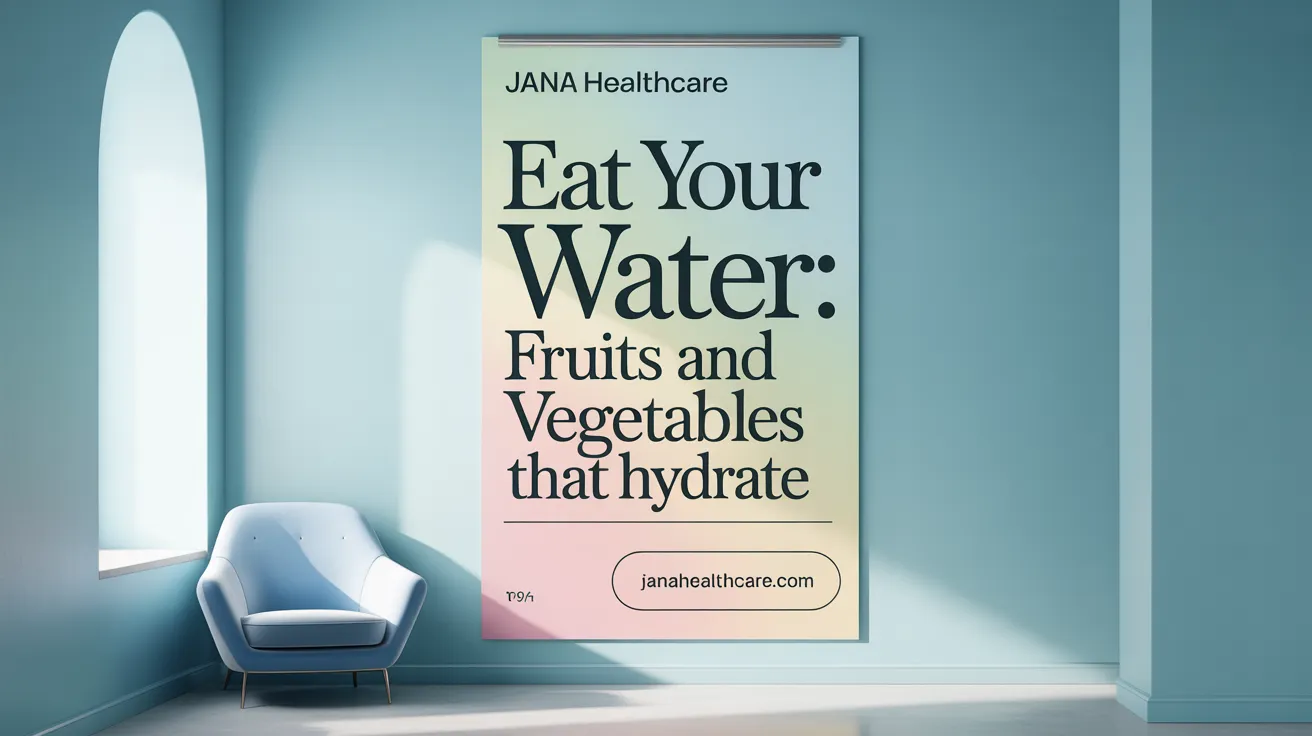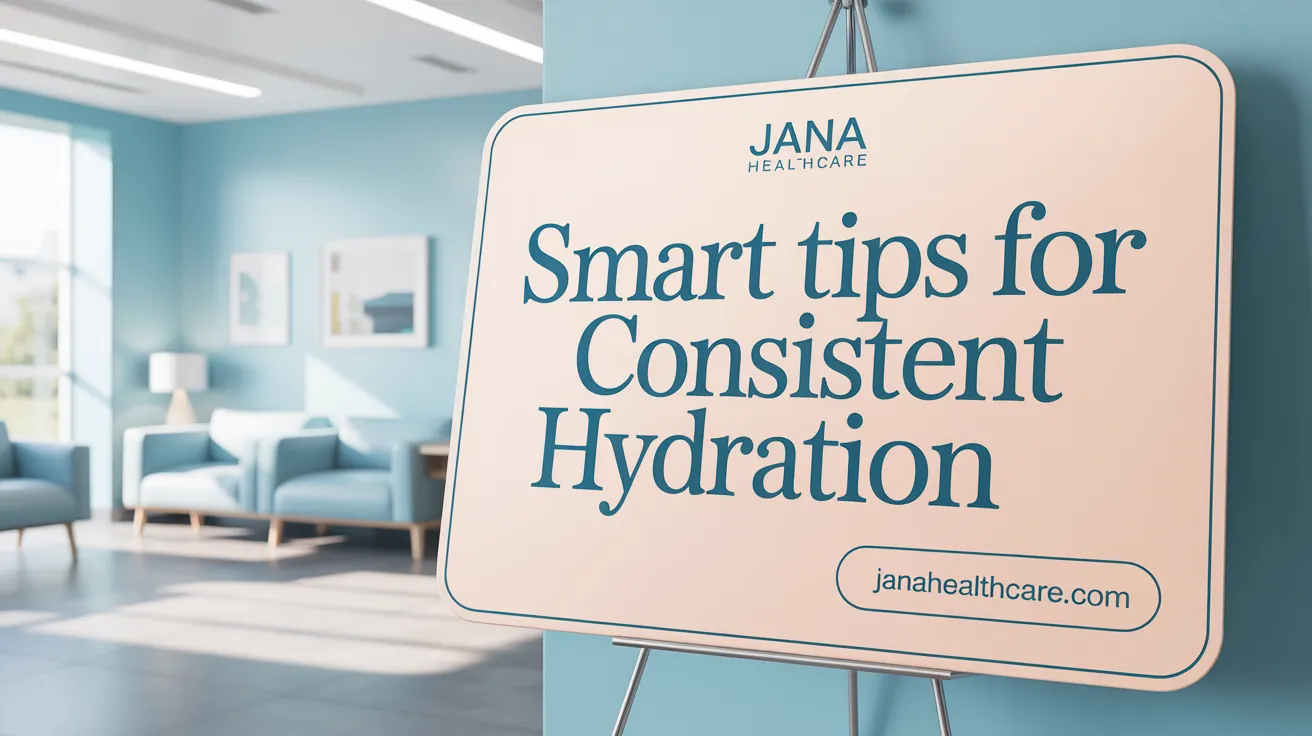Why Hydration Matters for Your Health and Wellness
Water: The Foundation of Health
Water makes up about 60% of the human body, serving crucial roles in nearly every bodily function. It regulates body temperature, aids in digestion, lubricates joints, supports nutrient delivery to cells, and helps prevent infections. Blood plasma, a vital carrier of oxygen and nutrients, is over 90% water, emphasizing how essential water is for circulation and overall vitality.
Benefits of Staying Hydrated
Maintaining good hydration supports immune system strength, mental clarity, and healthy skin. It promotes smooth digestion and efficient waste removal, contributing to detoxification processes. Proper hydration can also enhance energy levels and reduce the risk of chronic conditions like kidney stones and urinary tract infections. Drinking adequate fluids is a simple yet powerful way to optimize your health and aesthetic wellness.
How Much Water Do You Need?
General guidelines recommend about 125 ounces (3.7 liters) daily for men and 91 ounces (2.7 liters) for women, including fluids from food and drinks. These needs increase with higher physical activity, warmer climates, or health conditions such as fever or vomiting. Eating water-rich fruits and vegetables like cucumbers, watermelon, and strawberries can also contribute to hydration.
Recognizing Dehydration
Signs of dehydration to watch for include dry mouth, headaches, fatigue, muscle cramps, dizziness, and dark or infrequent urine. Maintaining pale yellow or clear urine typically indicates proper hydration. Being proactive with fluid intake is essential, as thirst is often a late symptom. For personalized needs, consulting healthcare providers is encouraged to tailor hydration to your lifestyle and health goals.
Beyond Plain Water: Diverse Fluids That Contribute to Hydration

Alternative Beverages for Hydration
While plain water remains the gold standard for hydration, various other beverages can contribute to maintaining adequate fluid levels in the body. Options such as fruit and vegetable juices, milk, and herbal teas provide valuable fluids and, in some cases, additional nutrients. For example, milk not only hydrates but also replenishes electrolytes and supplies important minerals (milk for hydration).
Role of Caffeinated Drinks and Alcohol
Contrary to popular belief, moderate caffeine consumption—equivalent to about 2 to 4 cups of coffee daily—does not significantly dehydrate healthy adults (caffeine and hydration). Caffeinated beverages like coffee, tea, and soda can count toward daily hydration but should be enjoyed in moderation to avoid potential side effects such as increased urination or jitteriness (moderate caffeine intake and hydration). In comparison, alcohol tends to promote fluid loss and dehydration. It is advisable to consume water alongside alcoholic drinks and limit intake to support balanced hydration (effects of alcohol on hydration.
Benefits and Cautions About Sports Drinks and Energy Drinks
Sports drinks can be beneficial during intense or prolonged exercise, as they contain carbohydrates and electrolytes that help replenish energy and maintain fluid balance (sports drinks for intense workouts. However, they often contain high levels of sugar and sodium, which necessitates moderate consumption (sugar and sodium in sports drinks. Energy drinks, rich in caffeine and stimulants, differ from sports drinks and are generally discouraged for children and teens due to their high caffeine and sugar content (energy drinks and hydration risks.
Moderation and Hydration Tips Related to Beverages
To optimize hydration, set reminders or use apps to schedule regular fluid intake throughout the day (Using Hydration Reminders and Apps). Enhancing water with natural flavors like lemon or mint can make hydration more appealing (adding lemon or lime to water. Choosing beverages wisely and understanding individual needs—considering factors like age, activity level, and health status—supports effective hydration practices (hydration needs by age. Remember that thirst can be a late sign of dehydration, so proactively drinking fluids is key to maintaining wellness (recognizing thirst vs hunger.
Hydrating Through Food: Incorporating Water-Rich Fruits and Vegetables

Why are water-rich foods important for hydration?
Water makes up about 60% of the human body and plays a vital role in numerous bodily functions including temperature regulation, nutrient delivery, and waste removal. Consuming foods with high water content supplements fluid intake, supports hydration, and provides additional nutrients such as vitamins and minerals that are essential for health. Learn more about the importance of water for body and the benefits of hydration.
Examples of fruits and vegetables that help with hydration
Eating fruits and vegetables that contain over 80% water can significantly contribute to maintaining hydration. Some excellent choices include:
- Cucumbers and iceberg lettuce (about 96% water)
- Celery, romaine lettuce, and tomatoes
- Watermelon, strawberries, cantaloupe, and oranges
- Spinach, kale, zucchini, and bell peppers
These foods not only hydrate but also provide fiber and antioxidants beneficial for overall wellness. Explore the list of foods that help hydration and hydrating fruits and vegetables.
How do dietary choices impact hydration?
Incorporating water-rich produce into daily meals enhances hydration naturally and aids in preventing dehydration symptoms such as dry mouth, fatigue, and headaches. Choosing diets rich in fresh fruits and vegetables helps maintain fluid balance, especially in warm climates or during physical activity when fluid needs increase. Moreover, consuming adequate water alongside such foods optimizes hydration and supports skin health, digestion, and cognitive function. For more details, see hydration strategies and hydration tips.
Practical tips for enhancing hydration with food
- Add fresh berries or cucumber slices to water for flavor and added hydration
- Snack on juicy fruits like watermelon or oranges during the day
- Include leafy greens and hydrating vegetables in salads and meals
- Use soups and smoothies as tasty, water-rich meal options
These simple dietary adjustments foster better hydration habits to promote health and vitality. Check out hydration hacks for a healthier you and hydration habits and tips for additional ideas.
Smart Strategies to Maintain Consistent Hydration Throughout the Day

How can routine reminders help promote better hydration?
Many people do not drink enough fluids simply because they forget. Using routine reminders—such as phone apps, alarms, or timed cues linked to daily activities—can encourage consistent sipping throughout the day. Associating water intake with habits like meals, work breaks, or exercise makes hydration a natural part of your routine and helps prevent symptoms like headaches or fatigue. For more on this, see Using Hydration Reminders and Apps and Hydration Reminder Apps.
What are the benefits of using reusable water bottles effectively?
Carrying a reusable water bottle ensures you have water readily available wherever you go, making hydration convenient and continuous. Choosing a bottle that suits your lifestyle—considering size, leak-proof features, and ease of cleaning—encourages frequent use. Tracking water intake via marked bottles or smart bottles can also motivate you to meet your daily goals. Learn more about Choosing a Water Bottle and Using a Reusable Water Bottle.
When is the best time to drink water during the day?
Spacing water intake evenly is advisable rather than drinking large amounts all at once. Drinking water before, during, and after meals aids digestion and nutrient absorption. Hydrating before outdoor activity or exercise, then replenishing after, helps maintain optimal fluid balance. Starting your day with water supports metabolism and mental focus. Explore further guidance on Daily Water Intake Guidelines and Hydration During Exercise.
What lifestyle and environmental factors impact hydration habits?
Climate and activity level play critical roles. In warmer weather or when exercising, increased fluid intake compensates for losses through sweating. Avoiding excessive alcohol and sugary drinks, which can promote dehydration, is important. Incorporating water-rich fruits and vegetables can boost hydration naturally. Additionally, managing sun exposure and wearing protective clothing can reduce fluid loss. For insights, see Hydration Needs in Hot Climates, Hydrating Foods, and Importance of Outdoor Hydration in San Diego.
Maintaining consistent hydration involves an integrated approach using reminders, practical tools like water bottles, timing strategies, and lifestyle adjustments. These habits support optimal health by ensuring your body’s water needs are met efficiently throughout the day.
Hydration and Health: Recognizing Symptoms and Avoiding Risks

What are the signs of dehydration and overhydration?
Dehydration symptoms include dry mouth, headaches, muscle cramps, fatigue, dizziness, dark or infrequent urination, dry skin, and confusion. Severe cases may present with rapid heartbeat, irritability, and even fainting. Conversely, overhydration, or hyponatremia, is less common but dangerous. Signs involve nausea, confusion, seizures, and swelling, which require immediate medical attention. For more details, see Signs of overhydration and hyponatremia, Symptoms of dehydration, and signs of dehydration.
What health consequences can poor hydration cause?
Inadequate hydration can impair temperature regulation, kidney function, and nutrient delivery, increasing risks for urinary tract infections, kidney stones, and prolonged fatigue. Chronic inadequate fluid intake is also linked to higher incidences of heart failure, diabetes, chronic lung disease, and dementia. Learn more about the importance of water in the human body and hydration and chronic disease prevention.
When should you consult healthcare professionals about hydration?
Seek medical advice if you experience persistent dehydration symptoms despite fluid intake, exhibit severe symptoms like confusion or rapid heartbeat, or have underlying health conditions such as kidney disease or diabetes that may require tailored hydration plans. Children, older adults, and those ill with fever or vomiting should be monitored closely. For guidance, review Consulting healthcare providers about hydration and Hydration for newborns and older adults.
How does hydration relate to chronic disease prevention?
Research indicates proper hydration supports cellular functions essential for preventing chronic diseases. Maintaining adequate fluid balance may reduce risks of age-related illnesses and contribute to healthier aging by facilitating metabolic processes and toxin elimination. For further reading, see Hydrating for health and Hydration and healthy aging.
By recognizing symptoms early and maintaining balanced hydration through appropriate fluid and water-rich foods intake, you support overall wellness and reduce health risks associated with poor hydration. Additionally, explore Hydration hacks for a healthier you to adopt effective hydration strategies.
Modern Hydration Support: The Role of IV Therapy and Wellness Integration
What are the benefits of mobile IV hydration therapy?
Mobile IV hydration therapy provides rapid and direct delivery of fluids, vitamins, and minerals straight into the bloodstream. This method offers several advantages: faster rehydration, immediate relief from dehydration-related symptoms like fatigue and headaches, and targeted recovery support for conditions such as hangovers, migraines, and immune system challenges. Mobile services, especially in urban environments like Brooklyn, ensure convenient access by coming to your home, hotel, or workplace, which is perfect for busy lifestyles requiring quick hydration boosts. For more information on Mobile IV therapy in Brooklyn and IV Therapy Brooklyn NYC.
How does IV therapy complement traditional hydration strategies?
While drinking water and consuming water-rich foods remain fundamental to hydration, IV therapy addresses needs that oral hydration might not promptly fulfill. It provides an efficient fluid and nutrient replenishment pathway, particularly useful during acute dehydration after intense exercise, illness, or chronic health conditions. IV infusions often include electrolytes and vitamins that enhance cellular hydration and energy levels, complementing regular water intake and improving overall recovery processes. Learn more about hydration during exercise and hydration recommendations and foods that help hydration.
Why is integration of wellness and hydration important at medical practices like Jana HealthCare?
Medical practices emphasizing integrated wellness and hydration, such as Jana HealthCare, blend hydration support with aesthetic and health services to personalize patient care. By understanding individual hydration requirements and health goals, practitioners can tailor hydration strategies ranging from nutrition counseling to IV therapy. This holistic approach ensures hydration is part of a broader wellness optimization plan that may include nutritional balance, skin health, and immune function. Check resources on importance of hydration and hydration tips and hydrating for health.
How are personalized hydration solutions created?
Personalized hydration solutions begin with assessing individual factors like body weight, activity level, climate exposure, and health conditions. Healthcare providers then recommend tailored fluid intake goals, hydration through diet, and if appropriate, customized IV infusions that meet unique needs. Such solutions often incorporate lifestyle habits, preferred beverage choices, and practical tools like reusable water bottles or hydration reminder apps to promote consistent fluid consumption. Through ongoing evaluation and adjustment, personalized hydration aids in enhancing health outcomes and patient satisfaction. More about hydration reminders and strategies and hydration hacks for a healthier you.
Elevate Your Hydration Routine for Better Health
Importance of Varied Hydration Methods
Hydration is crucial, but it doesn't have to come from plain water alone. Incorporating natural fruit and herb infusions, herbal teas, and water-rich foods such as cucumbers, watermelon, and strawberries adds flavor and nutrients, making hydration enjoyable and effective.
Encouragement to Personalize Hydration Habits
Everyone’s hydration needs differ based on lifestyle, environment, and health status. Using reusable water bottles, setting reminders, or associating water intake with daily routines supports consistent hydration. Finding what works for you promotes long-lasting habits.
The Holistic Approach to Hydration and Wellness
Hydration supports vital functions like temperature regulation, digestion, and skin health. Combining fluid intake with nutrient-dense, water-rich foods enhances wellbeing, while mindful consumption of caffeinated or alcoholic beverages helps maintain balance for overall health optimization.
